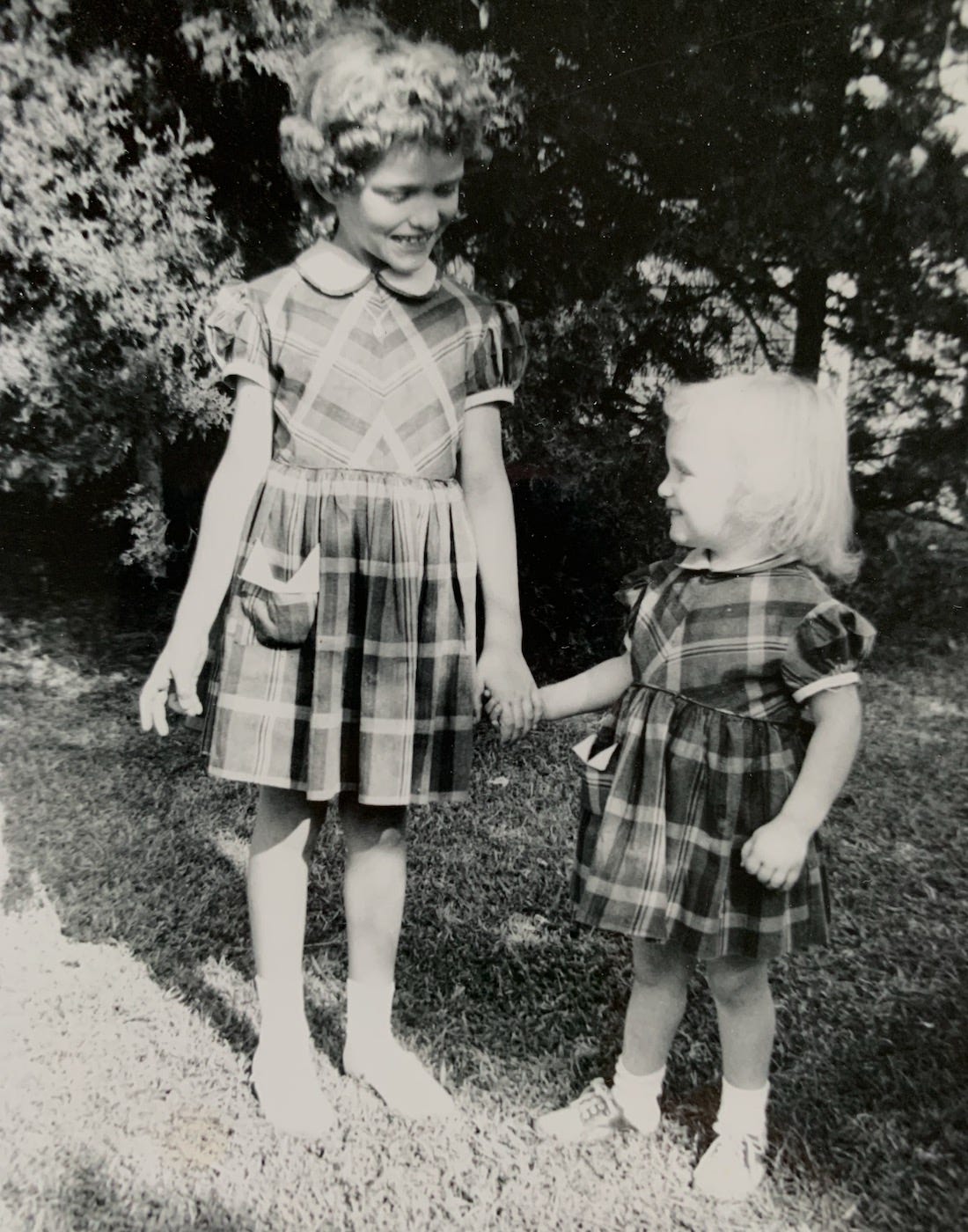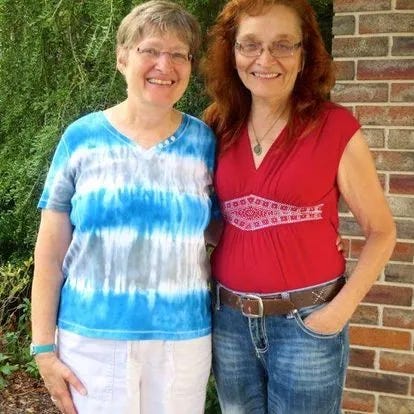It's been two years since my sister Mari left this world. In that time, I've moved through denial, bargaining, anger, depression, and finally, acceptance — the five familiar stages of grief. But the truth is, it's never a straight line. Grief weaves in and out of ordinary days, surprising me in quiet moments and wrapping itself around memories both sweet and painful.
It had been a long time since death took someone so close to me. Mom died in 1972, Dad in 1987, my brother John in 1990, and my sister Martha in 1991. Others have passed since then, but they weren't with me throughout my life the way Mari was. Her death hit me hard.
My thoughts keep returning to the last day I spent with her in June 2023—the final time I saw her alive. It was a wonderful day, just the two of us at her home. We hadn't seen each other in eight years, but we'd stayed close through emails and phone calls. Before my trip, Dave suggested I read the "Loving Rock" chapter in Ram Dass's Walking Each Other Home. I went prepared, ready to simply be with her.
We talked a lot that day, though I don't remember many details. I asked if she'd thought about death. She told me she hadn't really, except that when the time came, she hoped she'd have something to keep her busy in heaven. But she didn't believe she was dying. She still held hope that a "magic potion," which had supposedly cured others, would work for her. Still, she was so frail. When I looked at her face, I was struck by how much it had changed—I saw our grandmother there. But when she spoke, it was unmistakably my sister.
I left for a bit to pick up lunch from Fat Man's BBQ, just down the road—one of her favorite spots, even though she didn't eat meat. She wanted baked beans, slaw, and a side salad. It was slow going, but she managed to finish most of her meal. I'd ordered a large salad, far too big for me, and left the rest; I later heard she finished it the next day.
I brushed and flossed her teeth. "You never thought you'd have to do this for your sister," she said. I also held her thin, wrinkled hands, soaking them in warm water so I could trim her nails. "Too hot!" she exclaimed, quickly pulling her hands away—I'd made the soak a little too warm.
She was growing tired. Though she wanted a nap, she didn't want to leave me. I helped her to bed. "I'll be here when you wake up. Go ahead and rest." I went back to the living room with my book, but soon I heard her call, "Lynn?"
I sat with her. She talked, then drifted off, and I'd return to my chair—until she summoned me again. It happened several times, each conversation so sweet. Despite our differences, a profound bond existed between us.
That turned out to be the last time I saw her alive, though we spoke several times on the phone afterward. Just a month later, I was traveling back to Alabama, this time to plan her funeral and help clear out her house.
As for those stages of grief—denial was short-lived. At first, I couldn't believe Mari was gone; I couldn't believe my inbox was silent. But when no email ever came, I knew it was final. Bargaining showed up as "if onlys"—if only she'd seen a doctor sooner, if only I'd convinced her years earlier when she first started complaining. I lingered in anger and depression for a long time, angry at everything and everyone, especially at her. She didn't have to die. She should have taken care of herself. I honestly didn't know when or if I'd ever climb out.
But eventually, I did. I found my way to acceptance. Mari lived life on her own terms. She didn't listen to me, even though she often asked for my advice—advice she rarely took. Those last years, she was so unhappy, so leaving this world eased her suffering. I've accepted her death.
Losing her has brought my own limited time into sharper focus. It’s also deepened my lifelong longing for community. Dave and I are working together to build that, to become more connected and present. I'm thankful to Mari because her death woke up my writing—it brought me back to one of my first loves. And just the other day, I felt my art muse stir, ready to play again.
I still miss her. Since she died, I've reached for the phone countless times to tell her something or ask if she remembered a bit of our childhood. There's so much I still want to share. Sometimes, I can't believe she's really gone, and I still get sad. But I don't stay there long. Instead, I remember all we shared—our memories are a bond that will never die.
On this second anniversary of her passing, I look back grateful for the time we had on this earth together, for the bond we shared despite our differences, and for knowing she's finally pain-free and at peace. And somehow, in this acceptance, I feel whole again.







Sorry for your loss, Lynda. Thank you for sharing your journey through it. It reminds me that I must make the most of the time I have with the people I care about, especially family, because none of us is here forever and making memories now is important.
Your courage to relive her journey and her death through your own journey is inspiring, Lynda.